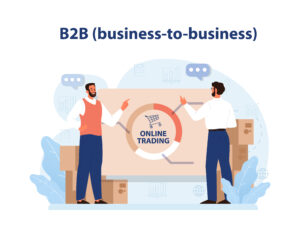In the digitally accelerating world of automotive sales, the integration of Enterprise Resource Planning (ERP) systems with automotive e-commerce platforms is becoming a cornerstone strategy for businesses seeking efficiency and competitive advantage. This fusion not only streamlines operations but also unlocks a new realm of real-time data analytics, driving smarter, more informed decision-making. Let’s delve into the myriad benefits of this integration and outline best practices to maximize its potential.
The Power of Integration
What Does ERP and E-commerce Integration Mean?
Integrating your ERP with an automotive ecommerce platform means creating a seamless communication channel between the two systems. This integration allows for the automatic flow of information, such as sales orders, customer data, inventory levels, and financial details, eliminating the need for manual data entry and reducing the likelihood of errors.
Why Automotive eCommerce Flourishes with ERP Integration
Real-Time Inventory Management:
The integration between ERP and ecommerce platforms revolutionizes inventory control, providing businesses with the capability to manage stock levels with unprecedented precision. As transactions occur online, inventory figures are instantly updated in the ERP system. This immediate synchronization ensures that the inventory data presented online is always accurate, effectively preventing the issues of over-selling and stock-outs. Consequently, this level of accuracy significantly boosts customer satisfaction by reliably meeting customer expectations regarding product availability.
Streamlined Order Processing:
From the moment a customer finalizes their purchase on your automotive ecommerce platform, the integration ensures that order details are directly and instantly communicated to the ERP system. This facilitates a rapid initiation of the order processing workflow, encompassing everything from payment processing to the logistics of shipment. The result is a remarkably smooth and expedient order fulfillment process that not only meets but exceeds customer expectations, fostering a positive buying experience.
Enhanced Customer Data Insights:
The symbiosis of ERP systems and ecommerce platforms creates a powerful tool for understanding and leveraging customer data. This integration facilitates a deeper analysis of customer behaviors, preferences, and purchasing patterns. Armed with these insights, businesses can refine their marketing strategies, create more personalized shopping experiences, and identify new opportunities for engagement and sales. This targeted approach to marketing and customer interaction can significantly increase conversion rates and foster long-term customer loyalty.
Financial and Accounting Accuracy:
One of the most critical aspects of ERP and ecommerce integration is its impact on financial management and accounting practices. By automating the transfer of transactional data, businesses can ensure that their financial records are always up-to-date and accurate. This real-time financial visibility is invaluable for maintaining precise accounting records, simplifying financial reporting, and ensuring compliance with regulatory standards. Moreover, this level of financial accuracy and transparency can provide businesses with a solid foundation for strategic planning and growth.
Best Practices for Successful ERP and eCommerce Integration
1. Opt for Compatible Systems:
The foundation of a seamless integration lies in the compatibility of your automotive ecommerce platform and ERP system. Begin by verifying that both systems can communicate with each other effectively. Platforms that provide API access or come equipped with pre-built connectors are ideal as they significantly ease the integration process. Compatibility ensures that data can flow freely and accurately between systems, setting the stage for a successful integration.
2. Establish Clear Integration Goals:
Clarity of purpose is crucial before embarking on the integration journey. Take the time to precisely define what you hope to achieve through this integration. Whether it’s to streamline your inventory management, elevate the level of customer service, or attain deeper financial insights, having a clear set of objectives will steer the integration in the right direction. This step ensures that the integration efforts are directly aligned with your overarching business objectives, thereby maximizing the return on your investment.
3. Prioritize Data Security:
The exchange of data between your ERP and ecommerce systems involves handling sensitive customer and business information. It’s imperative to prioritize the security of this data. Implementing stringent security measures, such as robust encryption protocols and secure data transfer methods, is non-negotiable. Additionally, compliance with prevailing data protection regulations is crucial to protect your business from legal implications and to maintain the trust of your customers.
4. Commit to System Maintenance and Updates:
The digital landscape is continually evolving, with new security threats and software updates emerging regularly. To maintain the integrity and efficiency of your integrated system, it’s vital to keep both your ERP and ecommerce platforms updated and well-maintained. Regular updates not only introduce new features and functionalities but also patch security vulnerabilities, ensuring your systems remain secure and operate at their best.
5. Invest in Comprehensive Team Training:
The success of your integrated platform also depends on your team’s ability to utilize it effectively. Invest in thorough training programs to ensure your staff understands how to navigate and make the most of the integrated systems. A well-trained team can harness the full potential of your ERP and ecommerce integration, leading to improved efficiency, enhanced customer service, and increased productivity.
Conclusion: Automotive eCommerce and ERP Integration with TotalOne
As the automotive industry continues its shift towards digital dominance, the integration of ERP systems with automotive ecommerce platforms stands out as a transformative strategy. TotalOne is at the forefront of facilitating this integration, offering a robust ecommerce solution that is designed to seamlessly mesh with your ERP system. By choosing TotalOne, automotive businesses can not only streamline their operations and enhance data analytics but also ensure they are well-positioned to adapt to future trends and technologies.
Embracing TotalOne’s eCommerce solutions means embarking on a path to digital excellence, where operations are streamlined, decisions are data-driven, and customer satisfaction is paramount. The future of automotive sales is intricately linked to technological integration, and with TotalOne, automotive businesses can confidently navigate this landscape, achieving unmatched efficiency and growth. The time to leverage the full potential of ERP and ecommerce integration is now, and TotalOne is your ideal partner for this journey. Contact us today!



